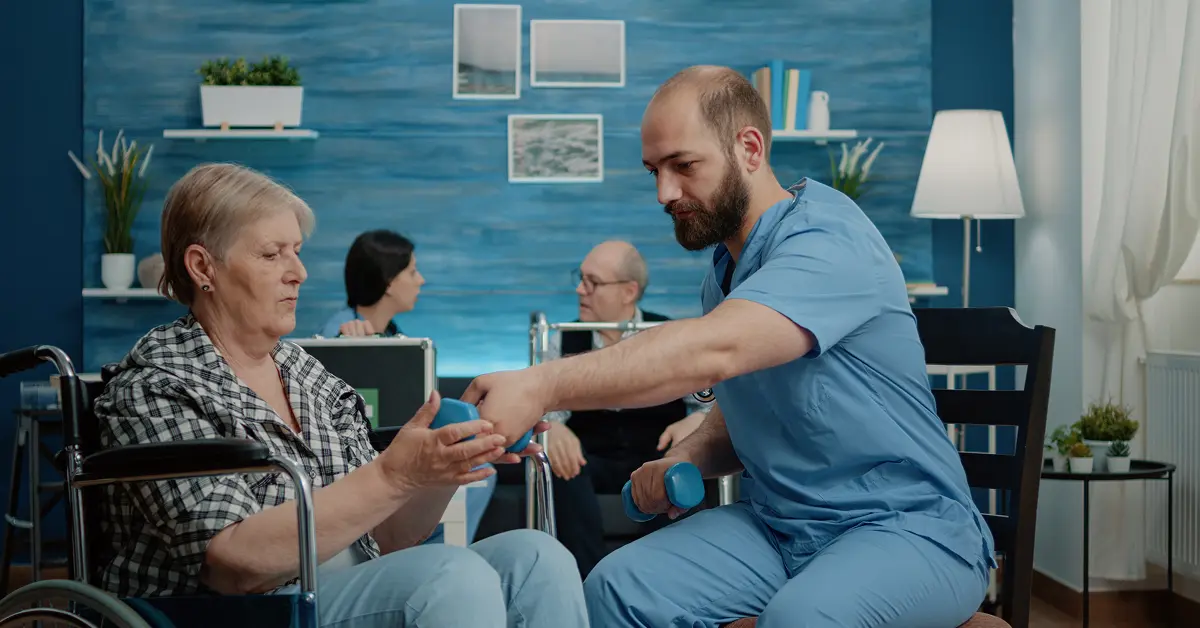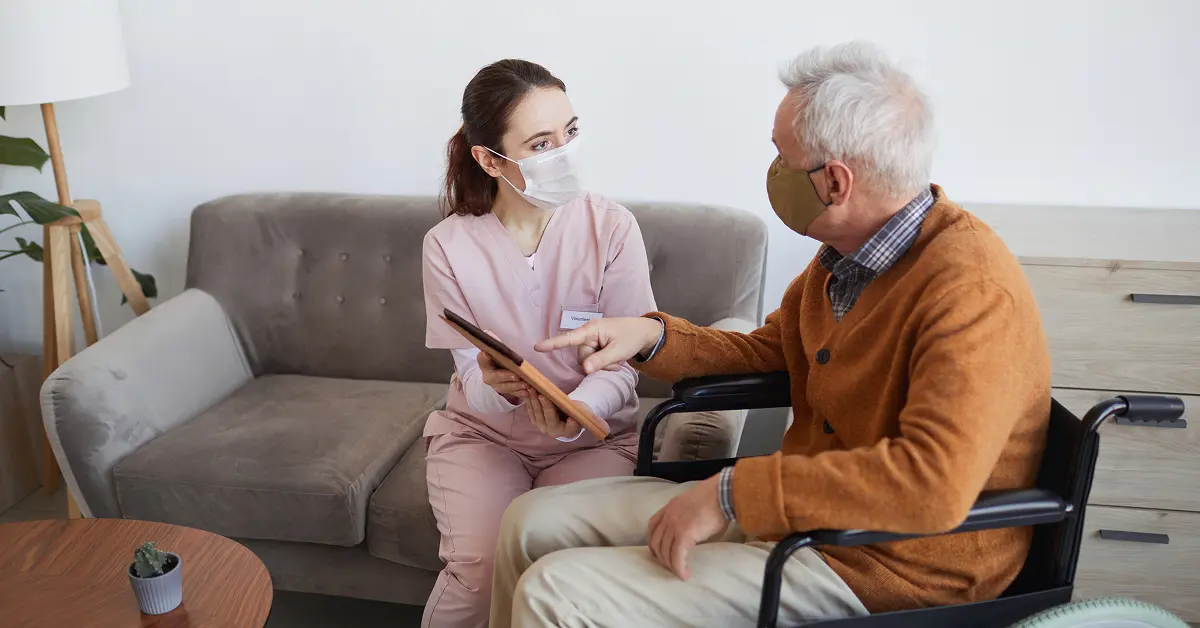As our loved ones age, mobility often becomes a challenge. In India, where multigenerational households are common, caring for a senior with limited mobility can be both a privilege and a demanding responsibility. Limited mobility might result from arthritis, stroke, osteoporosis, Parkinson’s disease, or injuries from falls. While these challenges can affect a senior’s independence, thoughtful caregiving and practical adjustments can significantly improve their quality of life.
Here are practical and compassionate tips for effectively caring for seniors with limited mobility in Indian households.
Understand the Cause and Extent of Mobility Issues
Before making any changes, it's crucial to understand the root cause of your loved one’s limited mobility. Is it due to a chronic illness like arthritis? A neurological disorder like Parkinson’s? Or is it simply age-related muscle weakness?
Consulting a geriatrician or a physiotherapist in India can help assess their current physical condition and recommend specific exercises, aids, or medical interventions. A customised care plan based on medical advice can prevent further decline and even improve mobility in some cases.
Make the Home Mobility-Friendly
Indian homes are often not designed with accessibility in mind. But small changes can make a big difference:
Key Modifications:
- Install grab bars and handrails in bathrooms, near toilets, and along staircases.
- Use anti-skid mats in bathrooms and kitchens.
- Rearrange furniture to create open walking paths, avoiding clutter.
- Elevate seating by using seat risers on sofas and chairs.
- Consider a ramp if your home has stairs and the senior uses a wheelchair or walker.
These adjustments make daily activities less risky and allow seniors to move around with more confidence.
Choose the Right Mobility Aids
India has a growing market for mobility aids, ranging from simple canes to advanced motorized wheelchairs. Based on the senior’s condition, the right tool can offer tremendous support.
Common Mobility Aids:
- Walking sticks/canes – Suitable for seniors with minor balance issues.
- Walkers/Rollators – Offer more stability and support.
- Wheelchairs (manual or motorized) – Ideal for those with very limited or no ability to walk.
- Bed rails and toilet chairs – Help with sitting and standing without assistance.
Buy from reputable suppliers or consider renting from local medical equipment providers.
Establish a Daily Routine
A consistent routine helps seniors feel secure and reduces anxiety. Plan a simple and predictable schedule that includes:
- Morning hygiene and breakfast
- Light physical activity (like chair exercises)
- Medication schedule
- Engaging activities like reading, watching TV, or gardening
- Afternoon rest
- Evening social time or prayer
Encouraging a routine that includes some movement, however small, helps prevent stiffness and muscle deterioration.
Incorporate Gentle Exercises
Regular movement can help retain muscle strength, improve circulation, and uplift mood. With a doctor’s approval, introduce:
- Chair yoga
- Seated leg raises
- Stretching routines
- Physiotherapist-guided sessions
Several Indian physiotherapists offer home visits or online sessions, especially in urban areas like Delhi, Mumbai, and Bengaluru.
Assist with Personal Hygiene Respectfully
Seniors may feel embarrassed or frustrated needing help with bathing, grooming, or toileting. Approach these tasks with sensitivity:
- Offer privacy with screen dividers or bathroom doors.
- Use waterproof bed protectors and adult diapers if necessary.
- Keep supplies handy—shampoo caps, no-rinse wipes, and long-handled sponges.
Hiring a trained caregiver from a home care service can help, especially if the tasks become physically demanding.
Ensure Proper Nutrition and Hydration
Mobility challenges can reduce a senior’s appetite or their ability to feed themselves. Ensure:
- Balanced meals rich in calcium, protein, and fiber.
- Easy-to-eat foods like khichdi, idlis, or dalia.
- Hydration through water, coconut water, or homemade soups.
If feeding becomes difficult, consult a nutritionist or speech therapist for guidance on texture modifications or supplements.
Prevent Bedsores and Muscle Atrophy
Seniors who spend most of their time sitting or lying down are at risk of pressure sores and muscle loss.
Prevention Tips:
- Change positions regularly – Every 2 hours if bedridden.
- Use pressure-relieving mattresses or cushions.
- Massage limbs gently to stimulate blood flow.
- Elevate legs occasionally to reduce swelling.
Monitoring their skin and comfort levels daily can help catch early signs of complications.
Stay Socially and Emotionally Connected
Reduced mobility often leads to social isolation and depression, especially in Indian seniors used to active community life.
Encourage social interaction through:
- Phone/video calls with relatives.
- Community WhatsApp groups.
- Visits from neighbors or extended family.
- Participation in local bhajan groups or satsangs (virtually or in-person).
Emotional well-being is just as important as physical care. If needed, consult a counselor who specializes in geriatric care.
Involve the Family in Caregiving
In Indian families, caregiving is often a shared responsibility. Rotate caregiving duties among family members to avoid burnout and make the senior feel surrounded by love.
Encourage children and teens in the family to spend time with the elder, listen to their stories, or play simple games like carrom or cards. This not only helps the senior but also teaches the younger generation empathy and responsibility.
Final Thoughts
Caring for a senior with limited mobility can be a deeply fulfilling experience when approached with patience, respect, and practical knowledge. In India’s cultural context, where elders are revered, it’s both a duty and a blessing to care for aging parents or grandparents.
By making the right adjustments at home, using appropriate mobility aids, and focusing on both physical and emotional health, you can ensure your loved one continues to live a life of dignity, comfort, and joy—despite mobility limitations.
If you’re feeling overwhelmed, remember you don’t have to do it alone. There are many senior care services across India that provide trained caregivers, physiotherapy at home, and even respite care options. Reaching out for help isn’t a sign of weakness—it’s a step towards better caregiving.
Contents
- Understand the Cause and Extent of Mobility Issues
- Make the Home Mobility-Friendly
- Choose the Right Mobility Aids
- Establish a Daily Routine
- Incorporate Gentle Exercises
- Assist with Personal Hygiene Respectfully
- Ensure Proper Nutrition and Hydration
- Prevent Bedsores and Muscle Atrophy
- Stay Socially and Emotionally Connected
- Involve the Family in Caregiving
- Final Thoughts
Our 24*7 services
Latest Posts
- What Is Respite Care and Why Is It Important
- Affordable home care for senior citizens in India
- Caring for Seniors with Dementia or Alzheimer's at Home
- Senior Caregiving A Guide for Every Family
- How to Write a Caregiver Resume That Gets You Hired
- How Care After Hospital Discharge Speeds Up Recovery at Home
- How to Get Home Health Care for Seniors Through Medicare
- What Does a Senior Citizen Caregiver Really Do at Home
- How to Care for Elderly Parents with Alzheimer’s or Dementia
- How to Get 24-Hour Care for Seniors at Home



